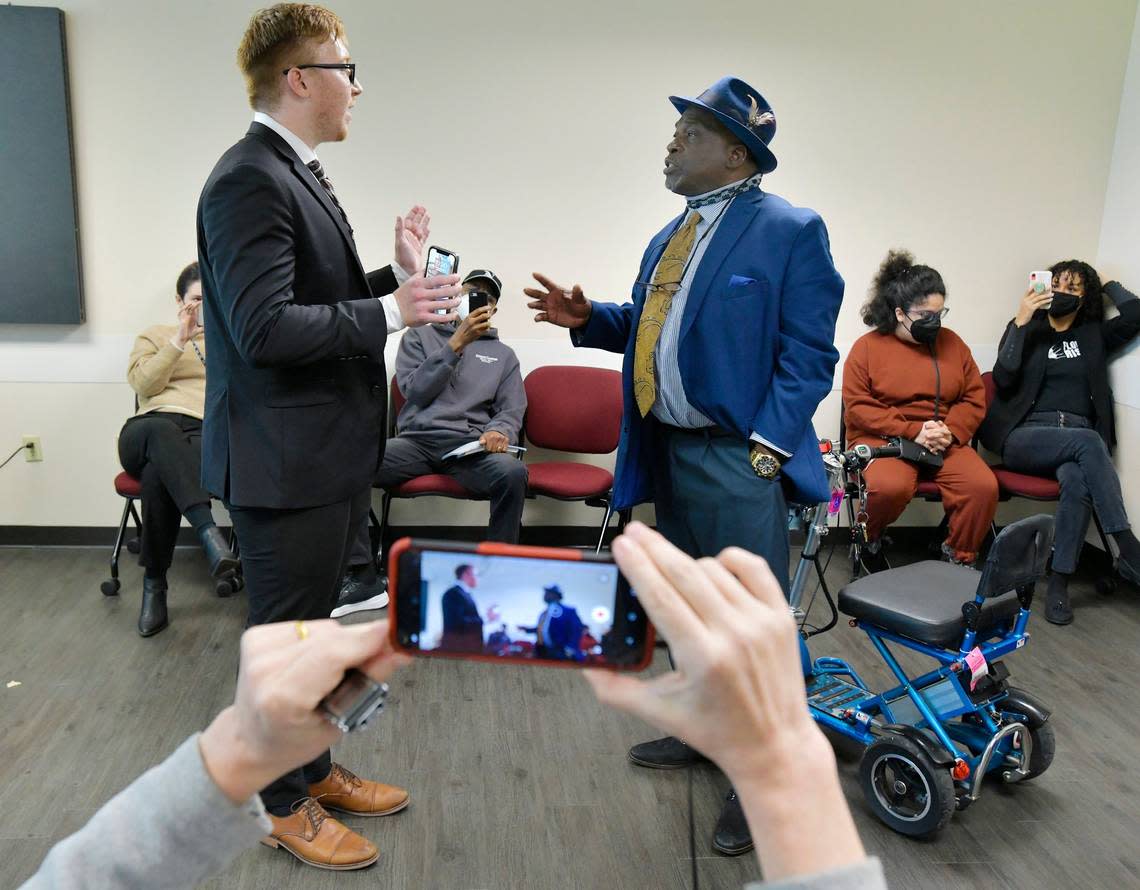Florida’s ‘anti-riot’ law infringes on right to protest, United Nations committee says

A law passed by Florida Republicans in reaction to the protests that erupted across the U.S. in the summer of 2020 restricts “the right to peaceful assembly,” according to a report released Tuesday by a United Nations committee tasked with monitoring human rights across the globe.
“The Committee is concerned about reports of increasing legislative measures and initiatives at the state level that unduly restrict the right to peaceful assembly following anti-racism protests in recent years, such as the HB1 Combating Public Disorder law in Florida,” the Committee on the Elimination of Racial Discrimination (CERD) report states.
Included in the report, which mostly focused on broader issues in the United States and several other countries, including Azerbaijan, Benin and Nicaragua, was a recommendation that the U.S. “take all necessary measures to ensure the exercise of the right to peaceful assembly without any discrimination.”
Although Gov. Ron DeSantis has held up the state as a bastion of freedom from socialist policies, the committee’s decision to single out Florida’s so-called anti-mob legislation serves as an international rebuke of one of his signature items. Ben Frazier, one of two activists who traveled to Switzerland to testify about Florida’s HB1, called the acknowledgment a “victory for democracy and common sense.”
“The United Nations just told Governor DeSantis that he’s moving in the wrong direction,” Frazier, the head of the Northside Coalition in Jacksonville, told the Miami Herald in an interview. “The legislature and the governor need to u-turn, do an about face and stop violating the First Amendment rights of Floridians to protest and to peaceably assemble.”
Florida Republicans passed the state’s Combating Public Disorder law in 2021, in the aftermath of the George Floyd protests, which were largely peaceful but at times erupted in spurts of chaos as police, protesters and counter-protesters clashed. DeSantis first proposed the law, which targeted “mob intimidation” by increasing penalties for people who participate in a protest that turns “disorderly” and allowed people to sue cities that don’t quell uprisings.
Democrats and other critics, though, said the law encouraged the arrest of peaceful individuals if nearby demonstrators acted violently or destroyed property, and allowed drivers to potentially escape responsibility for harming a protester with a vehicle. A federal judge blocked a piece of the law last September because, he said, it “encourages arbitrary and discriminatory enforcement.”
In response to the UN’s report, DeSantis spokesperson Bryan Griffin wrote that the people of Florida are the only ones with “any bearing on the governance” of the state.
“They, through their elected representatives and the passage of legislation this previous session, have decided that employees in a work setting and children in the school setting should not be subjected to racially discriminatory concepts; that it should be easy to vote and hard to cheat in Florida’s elections; and that law and order must be maintained,” Griffin wrote. “The governor supports these efforts and the will of the people of Florida.”
The state of Florida is not required to take any action as a result of the report, authored by human rights experts who convene every two years to evaluate efforts to eradicate racism from United Nations member states. As a treaty member, the U.S. will have one year to implement recommendations in areas relating to gun violence, the criminal justice system, indigenous people and migrants. The U.S. will have until the country’s next report is due in November 2025 to address issues pertaining to peaceful protests, however, a rapporteur will track how it responds.
Still, Denise Ghartey, who traveled with Frazier to Geneva, said the CERD’s acknowledgment of their complaints was a “success.”
“I’m glad that the CERD, the rapporteur and the chair of the committee saw this as an important issue and one that the United States needs to address head on,” said Ghartey, an attorney with the Community Justice Project.
The Combating Public Disorder law was the only legislation out of Florida specifically mentioned in the report, but other issues raised about the United States in general have been touch points for controversies and legislation in the state, such as the Stop WOKE Act, which took additional steps to eradicate critical race theory at the higher-education level and race-related workplace training.
Also detailed in the U.N. report were issues relating to law enforcement’s use of excessive force, reparations, voting rights and the end of Roe v. Wade. CERD Chairwoman Verene Shepherd also addressed the pushback against critical race theory, something she believed amounted to a “refusal to have a conversation around slavery.”
“Not wanting to teach about the issue of the Transatlantic Slave Trade is not good for education,” Shepherd, who doubles as a professor of social history at the University of the West Indies, said during a Tuesday press conference in Switzerland.
The report recommended that the U.S. adopt federal educational guidelines that ensure the history of colonialism, slavery and other human rights violations are “part of the school curriculum at all levels.”
“People have to be anchored to their past and learn about it,” Shepherd added.
